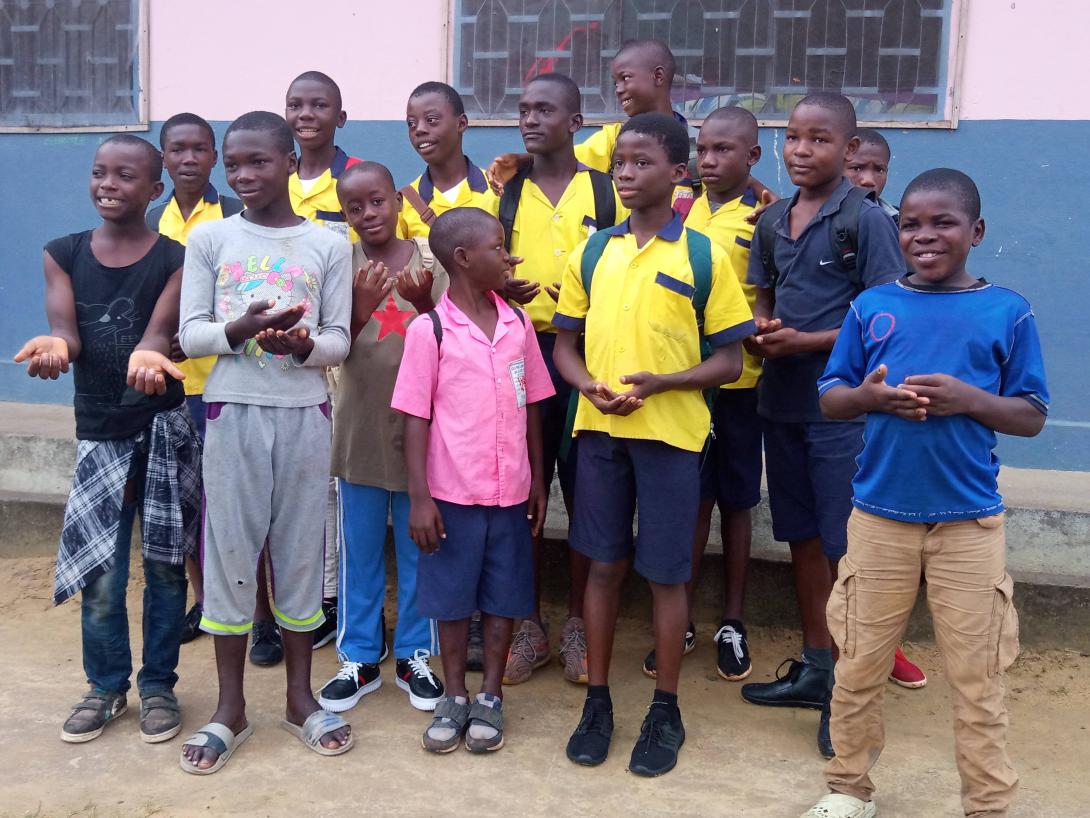
The new challenges in the support of young people in Cameroon
The socio-economic context in Cameroon
Also named the entry door to Central Africa, the city of Douala is the economic heart of Cameroon. This city attracts populations coming from all regions of the country, as well as neighbouring nations, in quest for economic opportunities. Indeed, Cameroon has registered one of the lowest unemployment rates of the continent. Yet, this economic success triggers new challenges for this country. Indeed, the city’s demographic transformation – whether in terms of population concentration, age group, or multiculturalism – has led to a significant breakdown of traditional mechanisms of solidarity.
Although the social progress index is still in constant positive evolution, according to the World Bank, 37,5% of the Cameroonian population still lives under the national poverty gap. Moreover, the weak remunerations are of the causes that retain households from getting out of the poverty trap. This complex socio-economic situation has important repercussions on the quality of life and the care of children. “The situation of street children is always linked to the family, that’s the starting point. Many families feel disarmed and abandon their children to us…” explains Father Martin, Head of the programmes of the Chaîne des Foyers Saint Nicodème, our local partner.
In Cameroon, children in street situation have been a major humanitarian concern for years. The escalation of the so-called “Anglophone” crisis, the major migrations and health crisis have contributed to the skyrocketing of the children in street situation’s phenomenon. Over the past 10 years, these young people have grown from 1,000 to more than 10,000 throughout the country. In Douala, a vast majority of these children practise begging and sex work as a means of subsistence.
“When I see the vastness of what we have to achieve, I would say that we do not even own 10% of the means (…) That is our reality.” Acknowledge Father Serge, Director of the Chaîne des Foyers Saint Nicodème.
Our actions alongside our partners
Since 2018, the FAAI supports its Cameroonian partners and aims to bring a multidimensional response to these issues. We work with the Chaîne des Foyers Saint Nicodème (CFSN) on two projects focused on the familial and socio-professional reinsertion of vulnerable youngsters. The CFSN association’s rich experience has enabled it to support more than 6,000 children towards familial and/or professional reintegration.
The PK24 centre is a place for stabilisation and schooling, taking care of children and young people in street situation and/or released from prison. The goal is to resocialise these children so that they can pursue their education or follow a professional formation in order to be integrated sustainably into the Cameroonian society. Its particularity lies in its status of agricultural centre, allowing children who have lived traumatic situations to stabilize themselves and be reconnected to nature. They also have the opportunity to take responsibility through educational activities. Agro-pastoral activities are a real educational challenge for the centre. The beneficiaries learn and regain self-confidence while getting involved in various activities including fishing, pig farming, poultry farming, gardening, banana plantations and palm groves. They usually stay in PK24 for a year before joining another centre of Chaîne des Foyers Saint Nicodème specialised in socio-professional integration.
Girls and young women are the first victims of social and economic misery. They often debut very young on the labour market and find themselves without qualifications. This results in a strong economic dependence on their husband or family. To solve this issue, the vocational training centre called Nyalla and set up by the Chaîne des Foyers Saint Nicodème offers support in the search for socio-professional empowerment of young girls and young mothers. The Nyalla centre offers training to give them the chance to start their business or integrate a company in the fields of sewing, styling, hairdressing-aesthetics and catering.
New challenges in the support of young people and resilience
Cameroonian social workers and educators still need to face the evolution of their beneficiaries’ profiles. This is especially the case of the so-called “witch children” phenomenon. At the heart of difficult family and economic situations, these young people are designated by members of their community as the source of their family’s misfortune. It happens all too often that these so-called “witch children’s” relatives strongly reject them and end up abandoning their children to their fate.
These young people have a street journey similar with to other children but have suffered psychological violence and exclusion that are very specific to this issue. These antecedents can only be identified through exchanges held in complete confidence with social workers. The establishment of this precious climate of trust is decisive for the quality of the educational work’s results.
In order to support educators and trainers facing the evolution of educational challenges, the FAAI launched in 2020 its project “Digital Notebooks for Social Work”. These notebooks are an online training device elaborated by child protection experts and are based on the experience of the structures that support them. The first formation focuses on the support of Unaccompanied Minors (MNA) and is already available online. The training on Children in Street Situation (ESR) will be available in 2022 and will allow structures to take appropriate measures to always guarantee personalised support for each young person received.
As Father Serge, Director of the CFSN testifies, children are at the heart of their action: “The first people to whom I report are young people! It is a selfless work, where you give your all. I see all that educators give, often beyond their own personal commitments. They are present for those other kids. ». The projects carried out with the CFSN are fundamental for appropriate care of children in street situations but also for the reduction of the phenomenon in the long term in the region “If we continue in this same dynamic, we will weigh in the local chessboard (…) This is our ambition!” concludes the director of the CFSN.